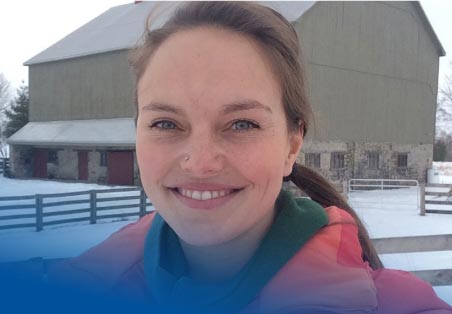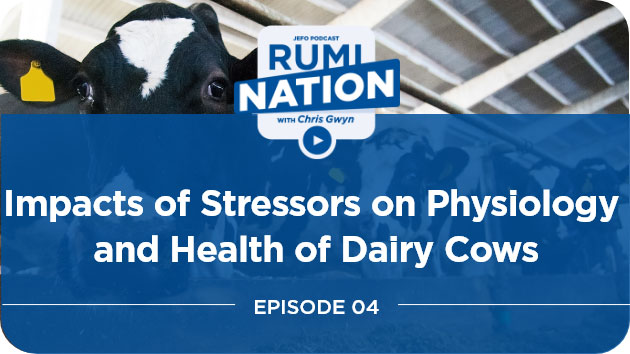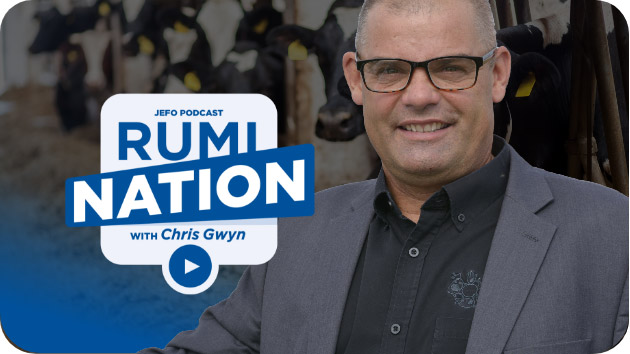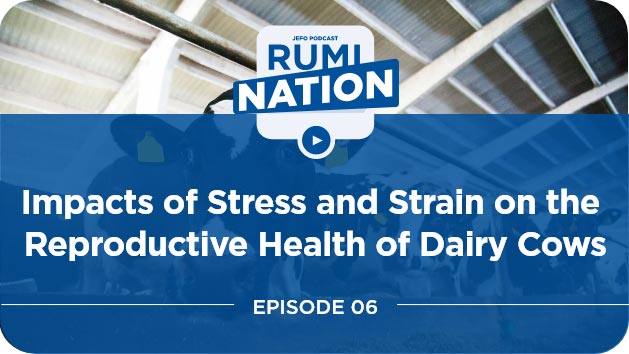RumiNation | S03 : E05
Precision Technology to Monitor and Predict Animal Health
Brought to you by Jefo Nutrition
Share now!
Did you enjoy this episode?
Share now!
Our guest - Dr. Meagan King
Meagan King joined the Department of Animal Science as Assistant Professor in Animal Physiology and Welfare on January 1, 2021. She completed her graduate studies at the University of Guelph, and then worked as a postdoctoral research fellow and sessional instructor in the Department of Animal Biosciences.

Timestamps & Summary
1:24
Dr. King, we would be interested to know what your research interests and projects are.
Dr. King
I have been working with different provinces, getting producer feedback on how I can assess what stresses them out. What is influencing their mental health and their physical health? How is this related to farm management? And I also want to look at connections to cow health, because everything on the farm is connected.
2:54
Mental health is so important in our world today. And not effectively investigated nor dealt with at the farm level. Therefore, we need to make that change.
Dr. King
I think it is up-and-coming. People are more willing to talk about it. I am hoping not just to look within dairy farming families, but we are going to do a study with beef producers, and hopefully go out to some other commodity groups as well.
3:25
Regarding the health and well-being of cows, a lot of your research has been looking at the impact of stressors on production, whether it is lameness, overcrowding or feed delivery. What have you discovered when you have looked at these stressors or how they can be identified using position technology?
Dr. King
Most of my studies were on farms with robotic milking systems. That does not mean that those are just specific to robotic herds. Many of the factors that go into making cows lame whether you have a robot or not, are the same.
I can tell you that a lame cow will produce less milk. Even cows with a moderate limp will have reduced milk production by 1.6 kilos per day. Minimal limps are going to impact lameness cow by cow.
Farms that had a greater percentage of lame cows, at a herd level, whether it is measured per cow or per robot, were also producing less milk.
8:20
You said it is important to look at behaviour and not just production to single out sick cows. Does that data need to be strengthened along with some activity monitoring, combined with the rumination or some of these systems coming up with their own algorithms that have a scoring assessment could tell you which cow is healthy?
Dr. King
There are different activity monitors out there, so I cannot say for sure. The ones on the legs, that are more of a pedometer, might be better for looking at health status and heat status. Whereas I think the neck collars, they rather show certain illnesses, but they do not really show lameness. However, they certainly do work for heats.
10:00
Maybe some take-home messages for the audience of what you know of the negative impacts of stressors and how precision technology can help you monitor and pick them up.
Dr. King
My first take-home message would be whether it is lameness, ketosis, or maybe mastitis, just because it is not severe, does not mean it does not have negative effects on cows. So, whether it is subclinical ketosis or moderate lameness, it is definitely worth doing something about it.
My second take-home message is I think it is good to look at multiple sources of information. So, have rumination or activity information and look how it relates to production. Have a holistic picture of the barn to see how cows are doing in order to make the appropriate decisions.







